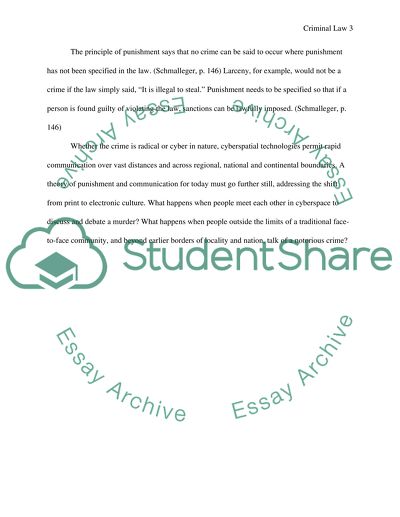Cite this document
(“Criminal Law: Crime and Punishment Essay Example | Topics and Well Written Essays - 1000 words”, n.d.)
Criminal Law: Crime and Punishment Essay Example | Topics and Well Written Essays - 1000 words. Retrieved from https://studentshare.org/law/1504287-criminal-law-bachelor-essay
Criminal Law: Crime and Punishment Essay Example | Topics and Well Written Essays - 1000 words. Retrieved from https://studentshare.org/law/1504287-criminal-law-bachelor-essay
(Criminal Law: Crime and Punishment Essay Example | Topics and Well Written Essays - 1000 Words)
Criminal Law: Crime and Punishment Essay Example | Topics and Well Written Essays - 1000 Words. https://studentshare.org/law/1504287-criminal-law-bachelor-essay.
Criminal Law: Crime and Punishment Essay Example | Topics and Well Written Essays - 1000 Words. https://studentshare.org/law/1504287-criminal-law-bachelor-essay.
“Criminal Law: Crime and Punishment Essay Example | Topics and Well Written Essays - 1000 Words”, n.d. https://studentshare.org/law/1504287-criminal-law-bachelor-essay.


